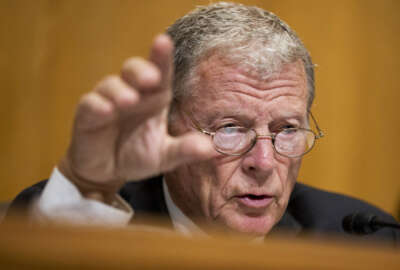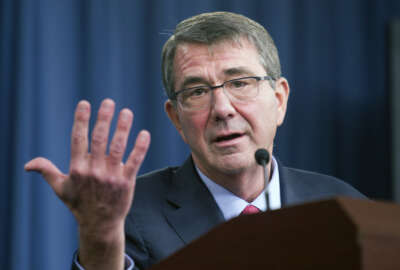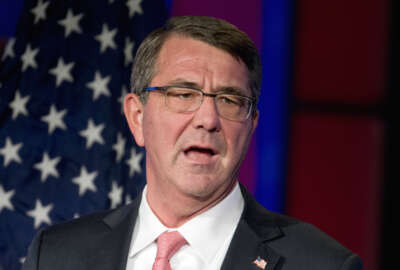
Carter defends Force of Future after congressional criticism
Defense Secretary Ash Carter punched back at Congress after some lawmakers doubted the necessity of the Force of the Future initiative.
Defense Secretary Ash Carter defended his Force of the Future personnel reforms one week after lawmakers delayed the confirmation of the Defense Department’s top personnel position.
“What we need to do is make sure … that we can attract the very best and that we can retain the very best. That’s why we look at things like family programs, maternity leave, pay, all of these things are important to attracting and retaining the very best. Most of these do not cost very much money,” Carter said during a Feb. 29 press briefing at the Pentagon.
Carter added that the military is defined by the people that serve and it cannot do its job without talented employees.
“We can’t apply the same recruiting and retention tools that companies do,” Carter said. “Our objective here is simply force effectiveness. We’re not trying to be futuristic; we’re not trying to be progressive.”
Members of the Senate Armed Services Committee took shots at the Force of the Future last week, calling into question the need for personnel reforms when global threats were so prevalent.
Sen. Michael Lee (R-Utah) said, during the hearing, that he has heard soldiers say they are more worried about equipment and training.
“I’ve never once heard somebody say I was going to go into the military, but I’m not going to because DoD is not the world’s most progressive employer,” Lee said during the Feb. 25 hearing.
Carter addressed that point and said it is important to make investments in future technology in tandem with making human investments and conducting operations all over the world.
Carter said the reason the United States is able to conduct such complex missions is because of the talented people involved, and DoD needs to make sure it can recruit a new generation of those employees.
Still, Carter needs to win over some important lawmakers for some of his Force of the Future plans. Those like committee Chairman John McCain (R-Ariz.) are just not on board with the initiative.
“Many of these Force of the Future proposals appear to be solutions in search of a problem,” McCain said in his opening statement. “I find it deeply disturbing that you are proposing to add expensive fringe benefits allegedly aimed at retention during a time when we are asking 3,000 excellent Army Captains to leave the service who would have otherwise chosen to remain on active duty. From my perspective, this initiative has been an outrageous waste of official time and resources during a period of severe fiscal constraints. It illustrates the worst aspects of a bloated and inefficient Defense organization.”
During the hearing, Sen. Jim Inhofe (R-Okla.) put a roadblock in the Force of the Future’s path by holding Brad Carson’s nomination for undersecretary of defense for personnel and readiness.
In that capacity Carson would lead the Force of the Future initiative. He is currently acting principal deputy undersecretary of defense for personnel and readiness. The new position would give him more authorities over the personnel changes.
Inhofe asked the Senate Armed Services Committee to hold on off reporting out Carson’s nomination until some whistleblower allegations could be checked out.
“I was disappointed when complaints were brought to my attention and to the attention of other members of this committee about your leadership in the command environment,” Inhofe said, during a Feb. 25 hearing. “I’ve read reports and have been briefed, as other have, regarding a … hostile work environment that has been fostered under your leadership.”
Inhofe requested the committee delay voting on Carson’s nomination until a command climate assessment (CCA) is conducted on Carson’s office.
CCAs are traditionally performed in the military and are used to look at the health and functioning of a command or organization. The assessments usually look at factors like morale, communication, teamwork and diversity through surveys and interviews.
Carson said he was unaware of any issues under his leadership.
“I would strenuously object to this characterization. I’ve never heard that allegation and people have many means to make those allegations at the department,” Carson said. He added that he would be happy to undergo a CCA.
Inhofe noted whistleblower accusations can sometimes be meaningful and other times have no merit, which is why he wants the CCA.
Copyright © 2025 Federal News Network. All rights reserved. This website is not intended for users located within the European Economic Area.
Scott Maucione is a defense reporter for Federal News Network and reports on human capital, workforce and the Defense Department at-large.
Follow @smaucioneWFED





